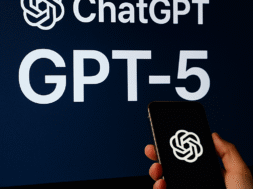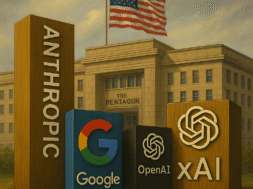
Sam Altman Calls ‘AGI’ an Outdated Buzzword — Experts Agree It’s Time for a New Conversation
OpenAI CEO Sam Altman believes the term “artificial general intelligence” (AGI) is losing its value as the AI industry evolves at an unprecedented pace, making it increasingly difficult to define.
AGI is often described as an AI system capable of performing any intellectual task that a human can do. For years, OpenAI has aimed to develop such technology in a way that is safe and beneficial for society. But Altman now says the label has become less useful.
“I don’t think it’s a particularly helpful term anymore,” Altman said when asked if OpenAI’s latest GPT-5 model brings the world closer to AGI. While he still believes human-level AI could be achieved in the “not-too-distant future,” he points out that multiple — and often conflicting — definitions make the concept hard to pin down.
One definition he has heard is an AI capable of doing “a significant amount of the work in the world.” But, Altman notes, the nature of work changes constantly, which makes that measurement unstable. Instead, he believes the focus should be on the continuous, exponential improvements in model capabilities and the expanding range of tasks AI can handle.
Nick Patience, Vice President and AI practice lead at The Futurum Group, shares the skepticism. While the AGI idea fuels funding and captures public imagination, he warns that its vague, sci-fi framing often creates hype that distracts from genuine progress in more specialized AI fields.
OpenAI and other AI startups have secured billions in funding and sky-high valuations by promising eventual AGI. The company was recently valued at $300 billion and is reportedly preparing for a secondary share sale that could push it to $500 billion.
Last week, OpenAI released GPT-5, describing it as faster, smarter, and more useful — especially for tasks like writing, coding, and health-related queries. However, the rollout drew mixed reviews, with some critics calling the update incremental rather than groundbreaking.
Wendy Hall, a professor of computer science at the University of Southampton, argues that AI companies should adhere to globally agreed metrics to measure progress when launching new products. She cautioned that the current market is “the Wild West,” making it easy for overhyped claims to thrive.
Altman acknowledges that GPT-5 falls short of his own definition of AGI, particularly because it cannot yet learn continuously on its own. He suggests that it’s more productive to discuss progress in terms of different “levels” of intelligence rather than a simple AGI-or-not binary.
Looking ahead, Altman expects AI to deliver breakthroughs in mathematics and science within the next two years. Still, some experts believe the AGI conversation is more of a fundraising tool than a reflection of where the technology is truly headed. As Patience put it, “It’s far more valuable to focus on specific capabilities than on this hazy concept of ‘general’ intelligence.”













